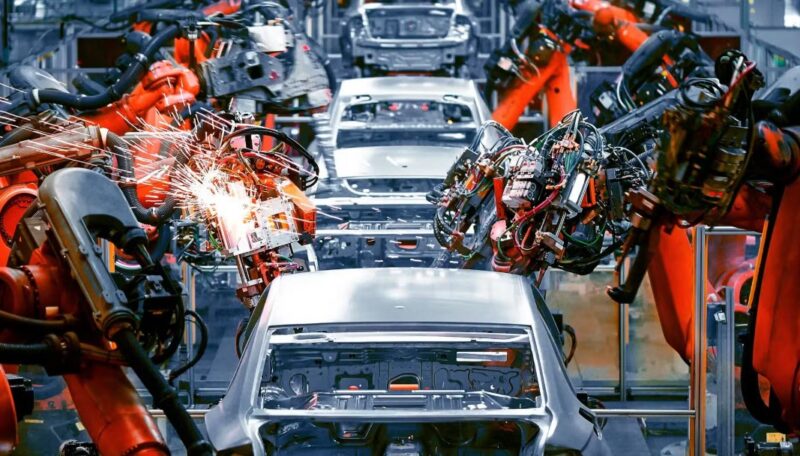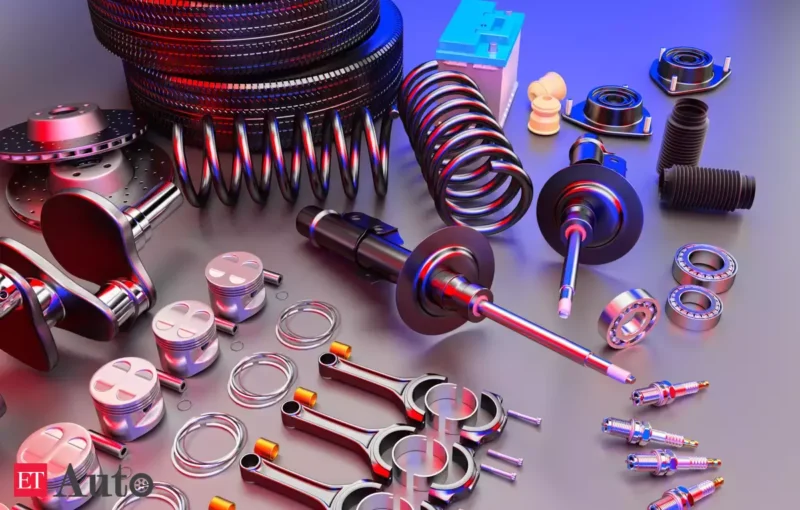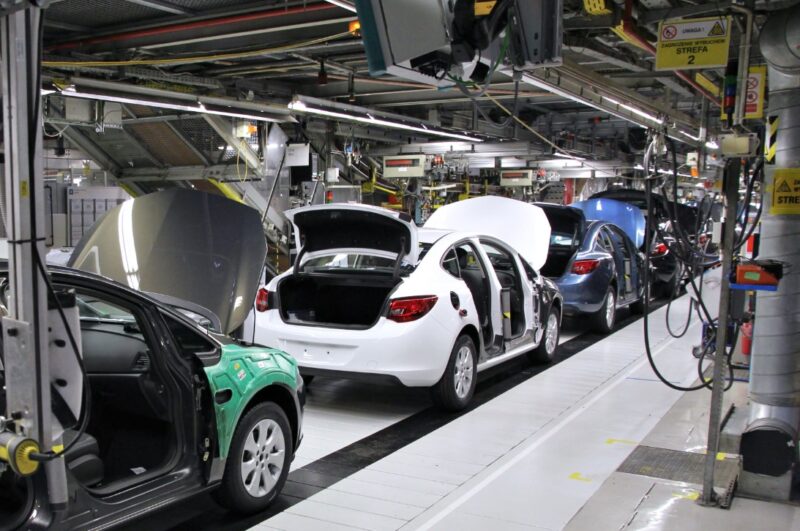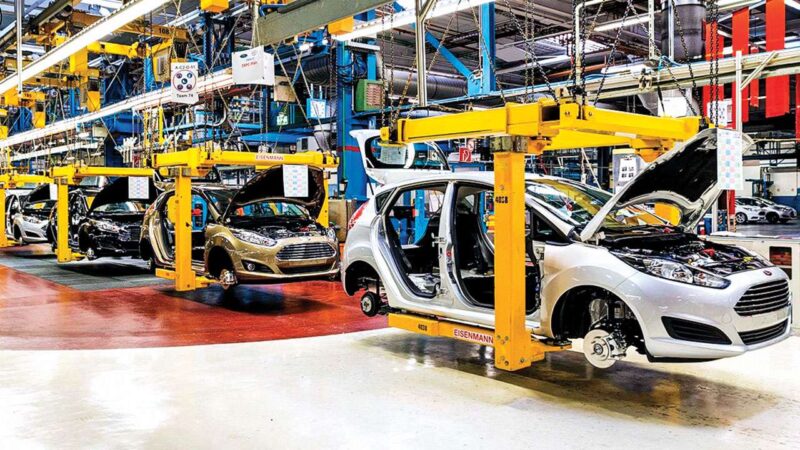The vehicle industry is the global economy’s one of the most influential sectors. It combines technological advancements, large-scale manufacturing, and complex supply chains to meet the world’s growing mobility demand.
The automotive sector encompasses everything from passenger cars to heavy-duty vehicles, with a wide variety of stakeholders that are contributing to its complexity and success. This ever-evolving industry’s core lies an often-overlooked yet critical component: genuine vehicle parts and the extensive supply chains and suppliers that keep vehicles running reliably and efficiently.
The genuine parts sourcing importance cannot be overstated by private vehicle owners and professionals alike. Genuine parts—designed and manufactured to meet the original equipment standards—ensure vehicle longevity, safety, and performance. For those who are looking for a trusted genuine parts supplier, STS-Global Scandinavian Transport Supply is a reliable company, which offers its business customers a comprehensive inventory of high-quality components.
The Global Vehicle Industry ─ A Snapshot

Since its inception in the late 19th century, the automotive industry has grown continuously through the advanced engineering, electronics, and sustainable technologies integrated into modern vehicles.
The global car industry is valued at over $2.7 trillion and employs, both directly and indirectly, tens of millions of people worldwide, as it is at 2024. In the passenger car market dominates such major players as Toyota, Volkswagen, and General Motors, while in the commercial and heavy-duty sectors, significant shares belong to companies like Daimler, Volvo, and Ford.
The adapting ability to global trends is one of the vehicle industry’s defining features. Electric vehicles (EVs), autonomous technology and sustainability initiatives are reshaping cars way to design and manufactured. A reliable parts supply chains’ importance has also heightened with this shift, as manufacturers and suppliers work to deliver regular parts and innovative components as fast as possible. This rapidly changing landscape creates a high demand for reliable genuine parts suppliers.
The Genuine Parts’ Role in the Vehicle Industry
Genuine parts are the vehicle industry’s essential component, which serves as quality, performance, and safety backbone. Unlike aftermarket parts, which are often designed for multiple model fitting and cost over precision prioritizing, genuine parts are crafted for individual makes and models specifically. For vehicle owners, using genuine parts offers several benefits:
- Enhanced reliability ─ Genuine parts are designed for seamless fit and optimal function, reducing breakdown risks.
- Longevity ─ High-quality materials and craftsmanship ensure longer genuine parts lasting and money saving in the long term.
- Safety ─ Components like brakes, airbags, and suspension systems play a critical role in driver and passenger safety. Genuine parts ensure the intention of those systems to perform.
- Warranty protection ─ Most manufacturers’ warranties require genuine parts used for repairs and maintenance, which is safeguarding your investment.
Suppliers like STS-Global specialize in a wide range of vehicle genuine parts, making it easier than ever to components access for fleet owners and repair shops that they need without compromising on quality.
The Vehicle Industry’s Parts Supply Challenges

While genuine parts importance is well understood, efficient parts supply chain maintenance is the industry’s significant challenge. Modern vehicles contain thousands of individual components, which are often sourced from hundreds of suppliers worldwide. This network’s coordination requires precision, transparency, and adaptability.
Some of the most pressing challenges include:
- Globalization ─ Parts are often manufactured in different countries, which increases transportation costs and the risk of delays.
- Technological complexity ─ As vehicles become more advanced, so do the parts that power them. Specialized suppliers and processes are required for those components like semiconductors, sensors, and EV batteries.
- Supply chain disruptions ─ Global supply chain vulnerabilities, leading to shortages and price fluctuations have often been exposed by events like the COVID-19 pandemic, geopolitical tensions, and natural disasters.
- Fake parts ─ The fake parts’ rise pose the automotive industry serious risk, as these substandard components can lead to performance issues, safety hazards, and financial losses.
To address these challenges, reliable parts suppliers are adopting advanced technologies and quality management system standards, which ensure genuine parts consistent and secure supply.
The Automotive Ecosystem’s Suppliers Role
The vehicle industry’s key role is played by suppliers by providing the materials and components needed for high-quality vehicles built to manufacturers. Three main categories can be highlighted for those suppliers:
- Tier 1 suppliers ─ Companies that supply complete systems or major components directly to the vehicle manufacturer. Examples include Bosch, Continental, and Denso.
- Tier 2 suppliers ─ These suppliers provide smaller components or sub-assemblies to Tier 1 suppliers. For example, a Tier 2 supplier might produce circuit boards that are integrated into a Tier 1 supplier’s infotainment system.
- Tier 3 suppliers ─ The base of the supply chain, raw materials like steel, plastic, or rubber are provided by Tier 3 suppliers.
This ecosystem is operated by genuine parts suppliers to ensure that fleet owners, repair shops, and individual customers will have access to high-quality components. Cooperation with reliable suppliers can give fleet owners a guarantee that the parts they ordered meet the highest standards of quality and reliability.
The Aftermarket Industry and Genuine Parts

Another vehicle industry’s critical segment is the aftermarket industry, which includes replacement parts, accessories, and upgrades. Discerning customers and maintenance professionals understand genuine parts’ value over generic or counterfeit alternatives, even this market offers a wide range of options.
Typically produced by third-party manufacturers, aftermarket parts are designed to fit multiple makes and models. They often lack the precision, durability, and performance of genuine components, while these parts look more affordable. In opposition to aftermarket parts, genuine parts are made to meet the vehicle’s exact specifications and ensure a perfect fit and optimal performance.
By offering a wide variety of vehicles a reliable source of genuine parts, reliable suppliers bridge the gap between manufacturers and end-users. For a luxury sedan, an off-road SUV, or a commercial truck maintenance, the best way to ensure long-term performance and safety is to choose genuine parts from a trusted supplier.
Conclusion
The automotive industry is a human creativity testament that combines modern technology, complex supply chains, and a quality commitment to deliver tomorrow’s mobility solutions This industry’s heart has a simple truth: the genuine parts’ importance in ensuring safety, performance, and reliability.

